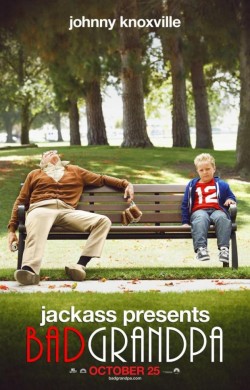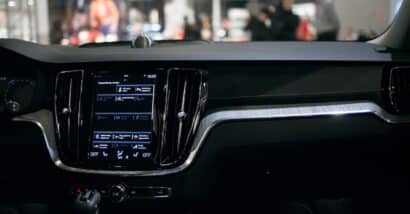 A California federal judge has dismissed a class action lawsuit over unwanted cellphone calls used to promote the Johnny Knoxville movie “Bad Grandpa,” ruling that the lead plaintiff does not adequately represent the proposed Class.
A California federal judge has dismissed a class action lawsuit over unwanted cellphone calls used to promote the Johnny Knoxville movie “Bad Grandpa,” ruling that the lead plaintiff does not adequately represent the proposed Class.
Plaintiff Seyed A. Razavi filed the robocall class action lawsuit in May 2013, accusing the two film industry research companies — IPSOS OTX Corp. and MPG Worldwide LLC — of violating the federal Telephone Consumer Protection Act by using an automated dialing system to contact him on his cellphone about a screening for the new “Jackass” movie.
Razavi said he did not give the companies permission to contact him in this way, and he was forced to pay for unwanted minutes on his cellphone because of these unwanted calls.
The class action lawsuit was dismissed on Jan. 27 after U.S. District Judge Fernando M. Olguin found Razavi lacked standing to represent the Class and because he failed to state a claim under which he could pursue relief.
Razavi was seeking to represent all affected persons in the U.S. who received unsolicited pre-recorded phone calls from the defendants in the past four years. Razavi alleges that the defendants negligently and willfully violated the TCPA, and sought an injunctive relief and $2,000 in damages per class member.
The case is Razavi, et al. v. IPSOS OTX Corp., et al., Case No. 2:13-cv-08972, in the United States District Court of Central California.
Overview of TCPA Policy
Under the TCPA, companies cannot use automated dialing systems, use artificial or prerecorded voice messages, send SMS text messages, and send unsolicited messages through fax machines. Under this law, callers representing the company must provide their name, contact information, and the company they work for. Negligent violation of this law will result in a $500 fine, while willful violations will result in $1500 per violation.
In general, companies must adhere to a number of requirements, set by the TCPA, when calling customers. Some of these requirements include but not limited to:
- In accordance to local time, companies cannot call before 8 a.m. or after 9 p.m.
- Companies must maintain a “do-not-call” (DNC) list of consumers who asked not to be called; to be honored for 5 years.
- Prohibits any companies from sending automated telephone equipment or an artificial or prerecorded voice to an emergency line, such as: “911”, a hospital emergency number, a physician’s office, a hospital or health care facility, a cellular telephone, or any service for which the recipient is charged for the call.
- Prohibits autodialed calls that take up two or more lines of a multi-line business.
File a TCPA Lawsuit Today
If you believe that you or a loved one have been the victim of a TCPA violation, you have legal options. Please visit the Text Message Spam Cellphone TCPA Class Action Lawsuit Investigation. There, you can submit your claim for a free legal review and if it qualifies for legal action, a seasoned TCPA lawyer will contact you for a free, no-obligation consultation. You will be guided through the litigation process at no out-of-pocket expenses or hidden fees. The TCPA attorneys working this investigation do not get paid until you do.
ATTORNEY ADVERTISING
Top Class Actions is a Proud Member of the American Bar Association
LEGAL INFORMATION IS NOT LEGAL ADVICE
Top Class Actions Legal Statement
©2008 – 2025 Top Class Actions® LLC
Various Trademarks held by their respective owners
This website is not intended for viewing or usage by European Union citizens.














